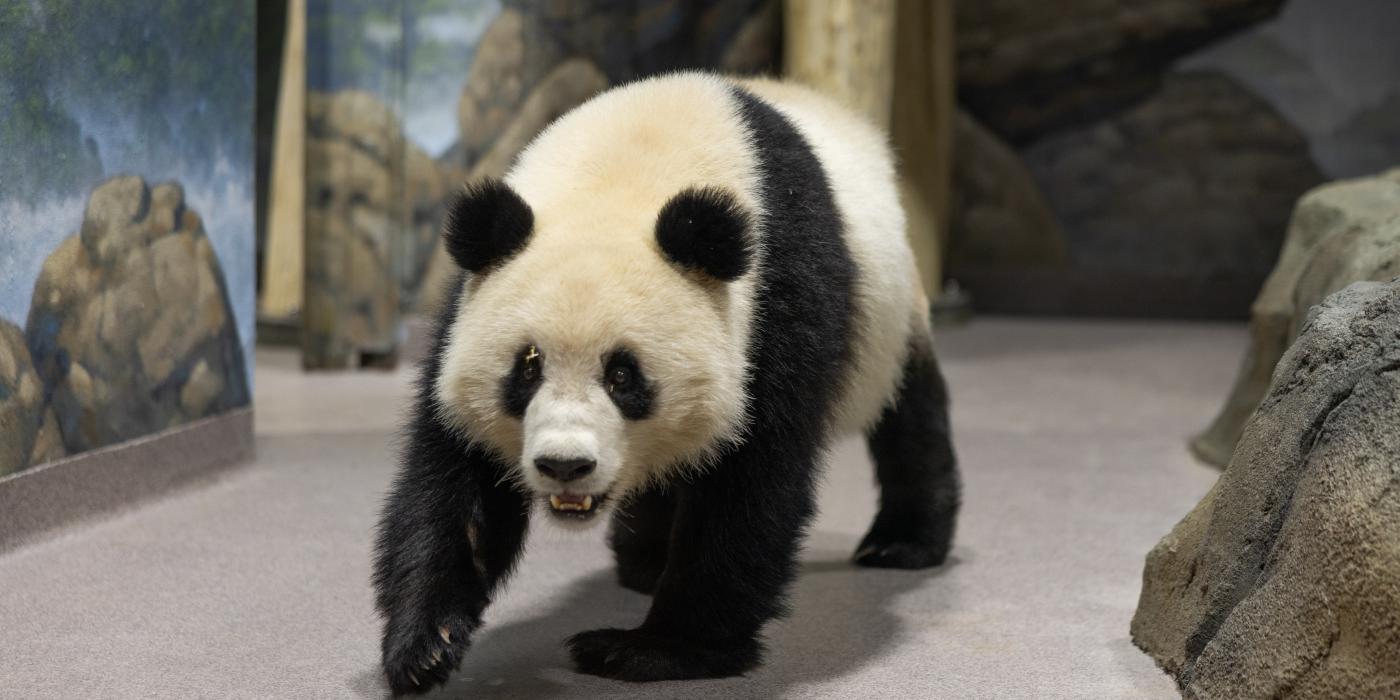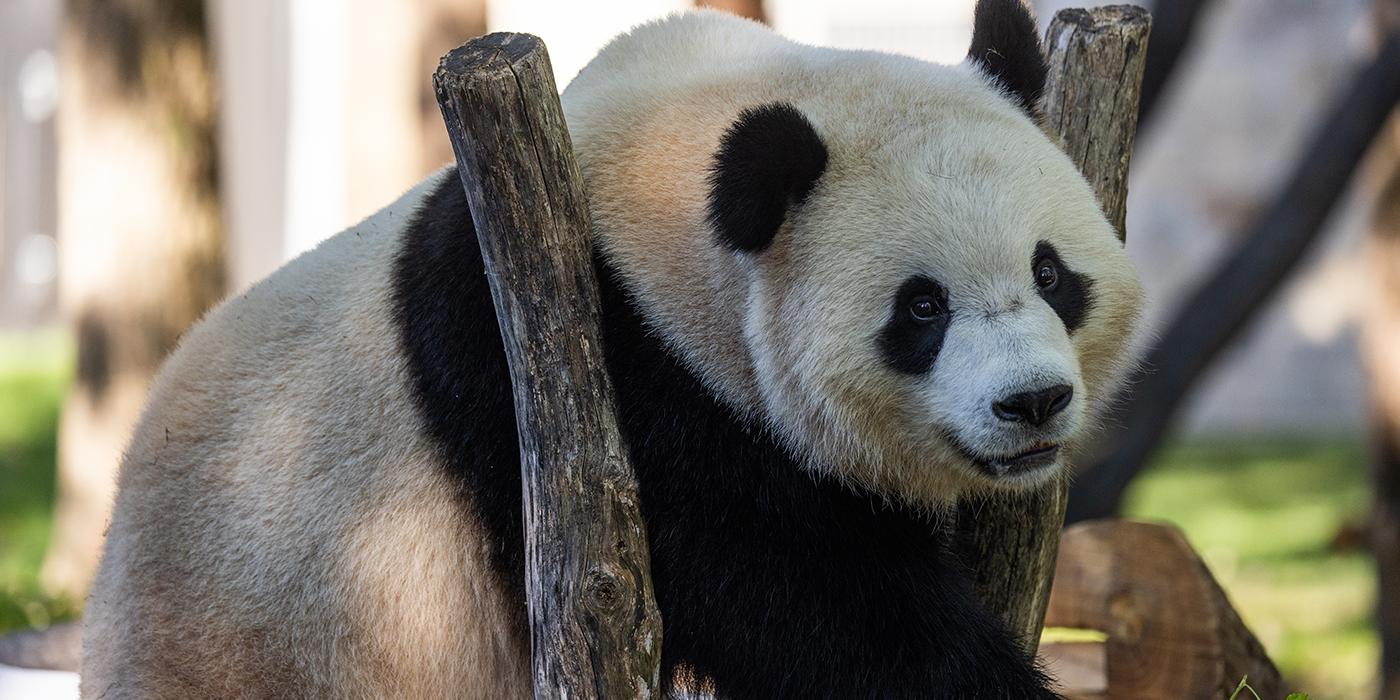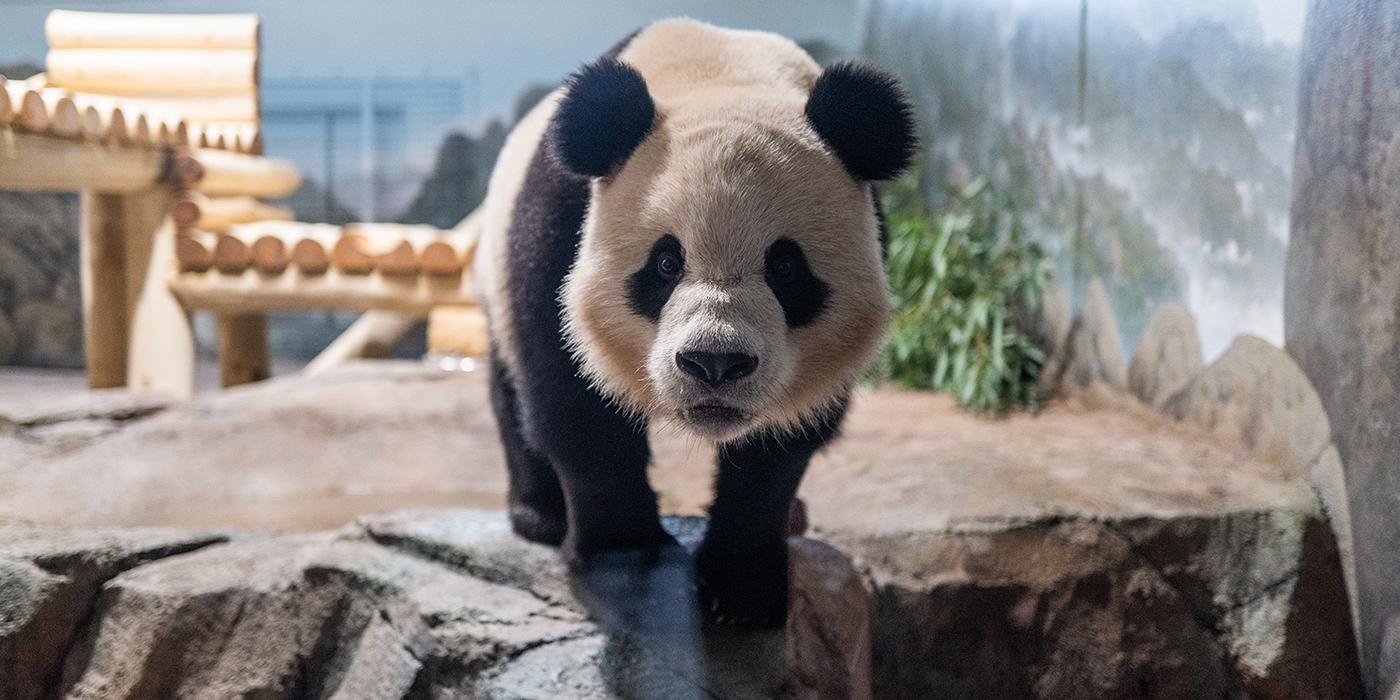Bei Bei is Weaning
People who have been watching the panda cams have seen some big changes over the last few weeks. Bei Bei is weaning from Mei Xiang. We have heard from many worried panda fans as Mei Xiang and Bei Bei go through their weaning process. This is the third panda cub we have weaned at the Smithsonian’s National Zoo. We are monitoring Mei Xiang and Bei Bei’s behaviors closely. Pandas are solitary animals, and cubs generally separate from their mothers around 18 months old. This is a natural process. Bei Bei is a resilient bear who is learning to be independent, and the animal care team is supporting his efforts. This is a process, but there is professional and dedicated staff monitoring our pandas and attending to their needs. The animal keepers provide all our pandas with lots of attention, including training sessions and enrichment, timed throughout the day.
Just like with any new big adjustment, there have been some stressful moments, but Bei Bei and Mei Xiang are adjusting. The timeline for Bei Bei’s weaning mirrored Bao Bao’s, which is the same model other institutions have successfully used with their cubs. The ambiguity of drawn-out separation can actually make things more stressful for moms and cubs. A clean, quick separation has proven to be the easiest way for both individuals to adjust. Prolonging the process (repeatedly letting them spend time together, then separating them) doesn’t eliminate any anxious behaviors; it just draws them out.
Even though Bei Bei is living separately from Mei Xiang, and has always lived separately from Tian Tian, he is still very aware of both of them. Yard 3 (the yard he lives in now) offers some good viewing opportunities to yard 2 (Mei Xiang’s yard), and just like his older siblings before him, Bei Bei is making use of them. All of our pandas are aware of what the others are doing—they live in close proximity, and can see, hear and smell each other. Bei Bei is likely sometimes trying to climb to see Mei Xiang. It is ok, because we know from our own experiences with his older siblings, as well as from the other zoos that have weaned pandas, that this disruption is short-lived, and that all will be fine soon. Bei Bei is already adjusting, and has been exploring and making use of the features of his new enclosures, such as napping in his indoor hammock.
We are already seeing behaviors in Tian Tian and Mei Xiang that show they are preparing for the upcoming breeding season. Mei Xiang has been pacing, which may be related to weaning Bei Bei, but it is also a common pre-estrus behavior. In conjunction with the pacing, we heard her vocalizing to Tian Tian on Friday. Again, we can’t speculate what her motive is, but it seems she is reacting to Tian Tian at least as much as she is to Bei Bei recently. These are same behaviors we saw with her previous two cubs, and past experiences have shown us that the disruption is short lived.
For 45 years, our passionate and professional animal care staff and scientists have worked to care for, study and help save this charismatic species. Our work would not be possible without your support. Thank you for reaching out with your questions on Mei Xiang and Bei Bei!
Related Species:




